MAKING HISTORY AT THE BARGAINING TABLE
The latest facilities agreement brings some impressive gains
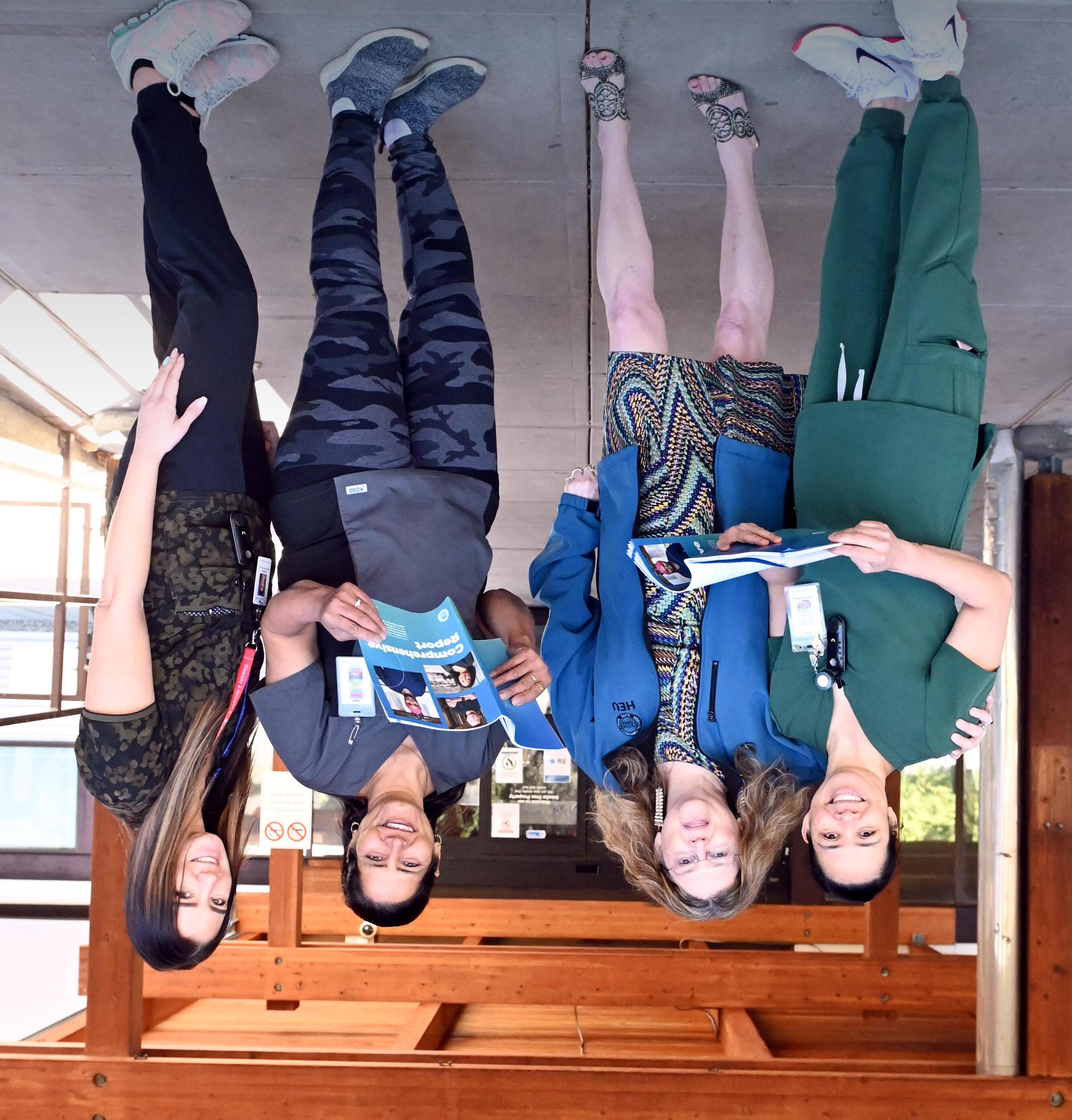
SUMMER 2023 • VOL. 41 • NO. 1 Guardian HOSPITAL EMPLOYEES’ UNION
Caelie Frampton PHOTO p7
Finding common ground Union seeks to connect with temporary foreign workers
“WE NEED foreign workers. And we need them to be protected,” says an HEU local chair at a for-profit long-term care home on Vancouver Island.
She is concerned about the vulnerability of temporary foreign workers at her site.
“They are being told to stay away from the union,” she says. “They’re scared to come to a local meeting, and they’re told to not even talk to me at work.”
A growing number of seniors’ care facilities in B.C. are taking advantage of the federal government’s Temporary Foreign Worker (TFW) program.
TFWs hired in HEU work sites are covered by the union’s collective agreement. But their status can make them reluctant to connect with their local, even if their workplace rights are violated.


Employer-specific work permits make it challenging for TFWs to change employers. This, paired with their temporary immigration status, creates unique vulnerabilities and increases the risk of work exploitation and abuse.
Being fired during the work permit period is a legitimate fear, says Chris Sorio of Migrante BC, an organization that advocates for migrant workers.
“They would have no income. They might not be eligible for EI. They might be supporting family in
their country of origin. Even if they were able to grieve a firing through their union, they could be deported before it’s dealt with,” he says.
As well, in countries like the Philippines, being a union member is seen as dangerous. “To be a trade union member is to be treated like a criminal,” Sorio says.
And in regions with housing shortages, some workers depend on their employer not just for their job but for the roof over their head.
HEU knows of more than one employer who provides rooms for TFWs within the facility where they work, while some supply rental accommodation offsite. But the employer is not obligated to provide housing, so these arrangements can be ended at any time.
This adds another point of vulnerability. “If the employer kicks them out, they have nowhere to go. I know one worker who slept in his car,” the Vancouver Island member says.
Many workers apply for the program as a step toward permanent residency, and to upgrade qualifications. The permit period is typically two to three years.
Health care employers must apply for a Labour Market Impact Assessment (LMIA) before hiring a TFW. This assessment confirms no Canadians or permanent residents are available to do the job.
The number of TFWs and inter-
national students working in health care in B.C. isn’t known. But in 2022 there were 119 LMIAs approved for care aide-type occupations, more than double the number in 2021, and up from only 37 in 2019.

This increase can be attributed to Canada prioritizing immigration of essential workers during the pandemic, as well as expansion and streamlining of the TFW program.
The labour shortage in health care is severe, and TFWs are filling essential positions that would otherwise be vacant.
But Sorio worries that the program creates “two sets of workers,
In regions with housing shortages, some workers depend on their employer not just for their job but for the roof over their head.
one who has rights and privileges as Canadians, and another group who are afraid to even complain, or exercise their rights.”
Sorio urges unions to offer support to migrant workers in practical ways, and to learn more about where they come from and why they’re here.
“Unless we remove the climate of fear, we will never be able to reach out,” he says.
ELAINE LITTMANN
SUMMER 2023 | GUARDIAN 1 FEATURE Breaking ground Members achieve historic breakthroughs in new deal for facilities | 7 NEWS More new agreements in public sector bargaining HEU members gain in new contracts | 3 Growing interest New activists connect through equity opportunities | 5 Beyond the minimum A living wage is still vital for workers | 11 COLUMNS Viewpoint Locals can look to leadership for financial guidance | 6 President’s Desk Public health care still needs strong advocates | 6 Transforming leadership HEU members practice leadership skills every day | 10 Guardian HOSPITAL EMPLOYEES’ UNION SUMMER 2023
A GROWING NEED | Temporary foreign workers in HEU work sites are covered by the collective agreement, but their immigration status puts them in a vulnerable position.
7 13
Meena Brisard | Secretary-Business Manager


Going forward, we need fundamental changes to this sector to restore common standards for working and caring conditions that had been dismantled by the BC Liberals.
A long-term fix needed for long-term care
POLITICAL action has always been an important part of our member-driven campaigns for better health care and workers’ rights.
Right now, HEU is pressuring the BC NDP government to keep its 2020 election commitment to fix seniors’ care by restoring common standards for wages, benefits and working conditions in this sector.
The provincial government has taken significant actions to improve the lives of seniors and the workers who care for them, by delivering standardized “levelledup” wages across the sector, hiring and training more workers, and ending contract-flipping.
Recently, they’ve announced two new publicly funded long-term care facilities – one on the Island and another in Vancouver, adding more non-profit capacity in seniors’ care.
But after three years of a pandemic, the gaps in seniors’ care are growing.
And going forward, we need fundamental changes to this sector to restore common standards for working and caring conditions that had been dismantled by the BC Liberals.
For-profit operators and owners need to be held to account for

the public funding they receive to deliver care. And we need to build new facilities to create more non-profit and public beds.
Make no mistake.
We will hold the government accountable for its 2020 promise.
In early April, we met with Premier David Eby to remind the government about the importance of seniors’ care.
And you’ll be hearing more about our Care Can’t Wait campaign throughout the year.
Making progress on seniors’ care is more than just ensuring our seniors receive the quality care they deserve.
It’s also about acknowledging that many workers in this sector – a group that is highly gendered and highly racialized – are not providing care on a level playing field.
They need to be treated with dignity and respect for their vital role in providing care. I encourage you to stand with seniors’ care workers and sign up for our Care Can’t Wait campaign.
HANDS OFF HEALTH CARE
In February 2003, HEU president Fred Muzin led a rally at the Vancouver Art Gallery to mark the first anniversary of the BC Liberals’ anti-labour legislation Bill 29, which launched the provincial government’s 16-year privatization agenda.
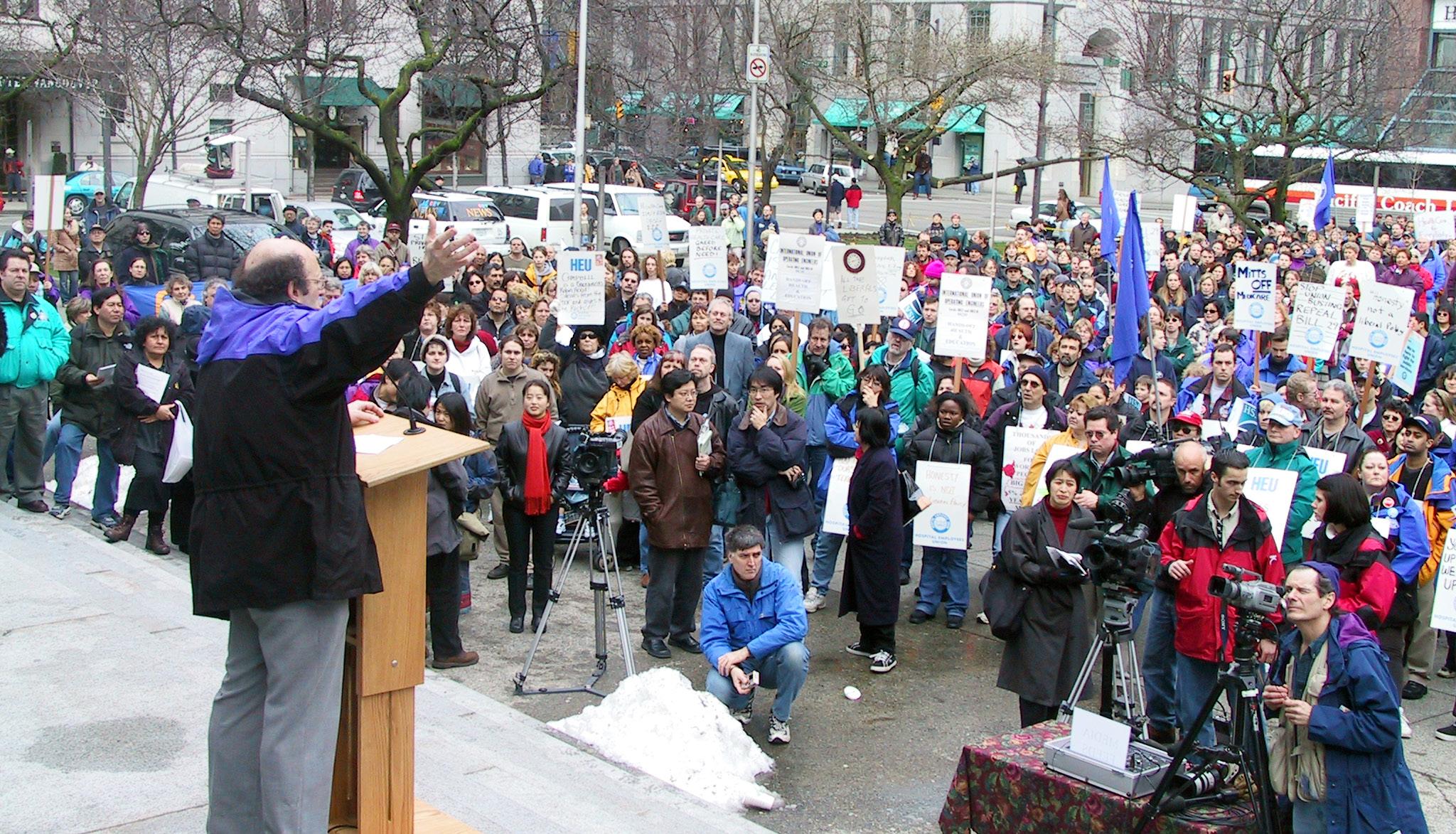
Twenty years later – after legal challenges all the way to the Supreme Court of Canada, a change in govern-
ment, and new legislation that protects workers and public services – HEU celebrates the repatriation of thousands of contracted out support services members. More than 4,000 HEU members were returned to the public sector, with immediate wage and benefit improvements, and job security.
2 GUARDIAN | SUMMER 2023 COMMENT
THROWBACK HEU HISTORY
You can help! Scan the QR code to email your MLA now.
More health sectors ratify contracts
MORE than 3,800 HEU members in community social services and community health have ratified new collective agreements that provide significant gains and bring them closer to wage parity with the Facilities Bargaining Association (FBA).
The contracts provide the same general wage increases and cost of living adjustments (COLA) negotiated in the recently ratified FBA and other public sector contracts, plus additional monies for Low Wage Redress.
The three-year agreements are effective April 1, 2022 to March 31, 2025. Members will receive retroactive pay back to April 1, 2022.
Community Health
The eight-union Community Bargaining Association (CBA) –led by the BC General Employees’ Union (BCGEU) – ratified their agreement by a vote of more than 94 per cent.
HEU has about 2,300 workers in the 21,000-member CBA, and they will receive an average wage increase of 14 to 16 per cent over the three years.
Contract highlights include: the largest general wage increase since the CBA was created; significant gains toward achieving wage parity with the FBA; and a funding commitment to ensure the long-term viability of the Joint Community Benefits Trust, protecting extended health and longterm disability benefits.
Community Social Services
After more than a year of contract talks, the nine-union Community Social Services Bargaining Association (CSSBA) also ratified a
YOUR UNION
HEU merch online
Our new online store makes it easier to shop for HEU-branded T-shirts, jackets, travel mugs, baby onesies, and much more.
All members can purchase online using a credit card and arrange for free delivery or for pickup at the Provincial Office in Burnaby.
If you’re buying for your local, you can also choose to pay by local cheque. Select your order through the store, make your cheque payable to HEU, and mail it to our Provincial Office.
Visit heustore.org to see the latest items.
contract by a vote of 95 per cent in favour.
The CSSBA covers 19,000 workers, including about 1,500 HEU members, in three contracts: General Services, Community Living Services, and Indigenous Services.
One of the biggest wins was restoring 100 per cent paid sick leave that had been slashed to 80 per cent two decades ago by the BC Liberals.
Another victory was securing more than $22 million in Low Wage Redress monies to help reduce compensation inequalities with other health sectors.

Gains achieved specifically for Indigenous Services include wage parity for all classifications with the Main Public Service contract; retention incentive pay for all classifica-
Bursaries available
HEU bursaries ranging from $350 to $1,000 are available for the 2023-2024 academic year.

Administered by a bursary committee under the direction of the HEU Provincial Executive, bursaries can be used at any post-secondary educational institution and are awarded to students who need financial assistance and demonstrate satisfactory academic standing.
HEU members, their spouses and children may apply.
Visit heu.org/bursaries for information. Deadline is August 8 at 5:00 p.m.
tions; and a commitment to continue discussions on parity with the Main Public Service agreement for recruitment and retention, compensatory recognition for cultural competency, and further Indigenization of the collective agreement.
Health science professionals and nurses
More than 22,000 health care professionals – including about 30 HEU members – covered by the Health Science Professionals Bargaining Association ratified a new contract last December with the same general wage increases and COLA as the other public sector unions.
Highlights include overhauling the job classification system; OH&S improvements; more education, and improved inclusion within the
health care workforce for communities that experience marginalization.
About two dozen HEU members are covered by the Nurses’ Bargaining Association, who ratified a deal in April.
In addition to the same public sector wage increases, the new contract includes funding to improve nursepatient ratios; Indigenous-specific anti-racism language; increases to shift premiums and allowances, and more flexible scheduling.
“It was a long, tough round of bargaining,” says HEU secretary-business manager Meena Brisard. “But these contracts make real progress on many key objectives. It’s about time these sectors receive the compensation, recognition and respect they deserve.”
BRENDA WHITEHALL
P3 workers now in-house
The long road to ending privatization continues with hundreds of contracted workers at publicprivate partnership (P3) health care sites slated to return to the public service this year.
During facilities bargaining in 2022, the provincial government confirmed its plan to bring workers at P3 sites in Fraser Health in-house.
And in January, the Provincial Health Services Authority announced that P3 workers in the
Summer 2023 | GUARDIAN 3 NEWS
Thi Vu PHOTO SUMMER
PUBLIC SECTOR BARGAINING
Elaine Littmann PHOTO
Your union. Your paper.
WELCOME NEWS | P3 workers at Teck Building at BC Children’s and Women’s hospitals celebrate with Health Minister Adrian Dix.
Indigenous equity through bargaining
IN 2021, B.C. became the first and only Canadian province to add “Indigenous identity” as a protected characteristic in the Human Rights Code
A 2020 report from the Honourable Madam Justice Ardith Walkem, the first Indigenous woman to be appointed as a B.C. Supreme Court judge, recommended this change.
Justice Walkem’s report stated that the existing grounds of discrimination under the Code did not adequately address the discrimination Indigenous Peoples experience and report.
This fall, HEU members in the facilities subsector voted to ratify a new collective agreement that includes important protections for Indigenous members.
These provisions include leave for Indigenous ceremonial, cultural and spiritual practices; political leave for service in Indigenous governance, and bereavement leave that reflects expansive Indigenous understandings of family.
The FBA agreement also includes a new process to promote the hiring and retention of Indigenous workers, the recognition of National Day for Truth and Reconciliation as a statutory holiday, and the creation of a new provincial forum to foster a culturally safe health care system.
Together, these updates to human rights law and the facilities collective agreement represent an important step toward equity and rights for Indigenous Peoples.
They reflect a clear commitment from HEU members to welcome Indigenous workers to the union and to stand in solidarity with the cause of Indigenous justice.
 NAOMI MOSES
NAOMI MOSES
Maintaining job status
Can a member work both casual and full-time?
HEU members are active on social media, often asking questions and sharing information.
Here’s one scenario – with name and occupation changed for privacy – that has come up in discussion, and may be helpful to members in similar situations.
Calista works for a health authority as a casual rehabilitation assistant at an acute care hospital. She likes her job, but she wants to explore other areas of health care.
So she started taking courses to build on her clerical skills.
Calista has applied for permanent, fulltime and part-time positions as a staffing clerk, but is concerned about losing her casual status as a rehabilitation assistant.
She is covered by the Facilities Bargaining Association collective agreement, so there are a few important options to consider.
HEU members can only hold one status with their employer: full-time, part-time or casual.
According to the Casual Addendum 8 (1), a casual employee must work 225 hours over a 12-month period – unless they have a “bona fide” reason [8 (4)], such as one covered by the Human Rights Code – in order to
YOUR UNION
Teck Building at BC Children’s and Women’s hospitals would also return.
This news was welcomed by P3 workers, who were excluded from the government’s 2021 announcement about ending commercial contracts.
Other sites, like cafeteria workers in Fraser Health, have also been brought into the public sector, even though they were not part of the Bill 47 announcement.
This signals the government’s commitment to ending failed privatization policies under the BC Liberals (now BC United Party).
Welcome new members
More than 700 new members have chosen to join HEU since the end of 2022 – Cascade Gardens Seniors Community, Good Neighbours View Royal, Luxton House and Lucas House, Pleasant View Housing Society 1980, Kiwanis House, Kiwanis Garden Manor, Hart House, Stanhope Viewmont House, and Selkirk Place.
We are also welcoming new care aides, LPNs, RNs and support services workers at Royal Arch Masonic Home, Carlton Gardens, Rosewood Manor, AgeCare Malaspina, Laurel Place, and Langley Lodge.
maintain their casual status.
But employers can also use their own discretion to determine if other reasons are accepted – such as schooling – which then becomes subjective and could become grounds for a grievance.
For example: the employer has to prove that they offered Calista 225 hours worth of shifts, based on her submitted availability, and Calista may be required to disclose her reasons for not working.
In Calista’s case, if she accepts the fulltime staffing clerk line, then she’s unable to remain on the rehabilitation assistant casual list. However, she could utilize Article 16.01(c) to accept blocks (less than 90 days) in a rehabilitation assistant vacancy.
If she accepts a part-time position, Calista could pick up extra shifts as a staffing clerk or a rehabilitation assistant, if the employer keeps her on their casual registry.

Full-time is equivalent to working 1,950 hours a year at straight time. Overtime rates would only be applied based on scheduling provisions in the collective agreement. Calista’s employer-based seniority would accrue based on all hours worked.
BRENDA WHITEHALL
4 GUARDIAN | Fall/Winter 2018
SUMMER 2023
Ruth Amend PHOTO IT’S THE LAW
YOUR RIGHTS
STANDING STRONG | HEU warmly welcomes 170 new members — care aides, LPNs, RNs and clerical workers — employed by Pro Vita at the Royal Arch Masonic Home in Vancouver.
KNOW
Using the power of connection
ABOUT 170 people gathered for HEU’s first in-person equity conference since 2019. Nearly half the delegates were new activists or firsttime equity conference attendees, which speaks to members’ growing interest in being involved in equity issues.
Held February 28 to March 2 at Vancouver’s Hyatt Regency Hotel, it was an opportunity for members identifying with equity-deserving groups to share experiences and elect equity standing committee members. The remaining caucus positions were filled through an Expression of Interest process in the spring.
Delegates attended skills-building workshops on topics like intersectionality; tenants’ rights and housing justice; how ableism affects everyone; building climate resiliency; storytelling through popular theatre; the duty to accommodate, and queer and trans history.
“Thank you for doing this critical work,” said financial secretary Betty Valenzuela, “for listening to each other with open minds and open hearts, and for sharing your lived experiences with open minds and open hearts. That’s how we grow as activists in equity-based work.”
HEU’s six Diversity VicePresidents – elected at the 2022 convention – participated in an equity panel discussion, moderated by leadership coach and activist Natasha Tony. These historic positions were permanently added to the Provincial Executive, the union’s governing body.
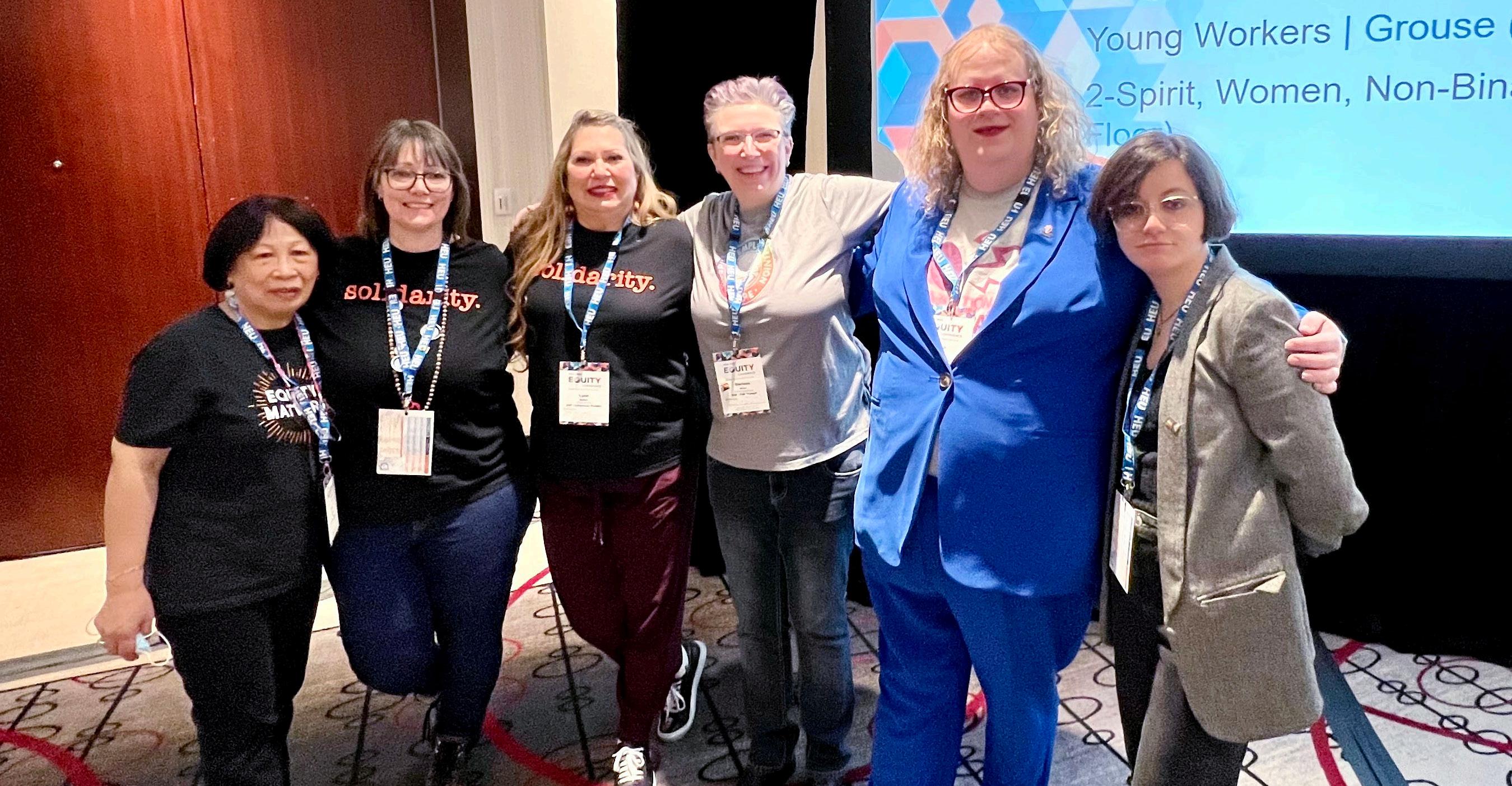
“This change was years in the making and didn’t come without a
Help for small locals
HEU locals with 500 members or less are eligible for a new financial supplement to help support activities and build member engagement.
Delegates to HEU’s 2022 convention voted to establish the Small and Mid-sized Local Supplement (SMLS) fund, providing financial support to smaller locals over and above the monthly dues rebates.
Local executives must apply by June 30 for this year’s fund. You can find more information on the HEU website under Resources for Locals (heu.org/resources-locals).
fight,” said secretary-business manager Meena Brisard. “It’s huge for HEU and for the labour movement in Canada to have these changes happen in our decision-making and leadership structure.
“As HEU’s first South Asian secretary-business manager, I didn’t get here without the work of thousands of members from equity groups, who over decades, pushed for fairness, fought discrimination, created space, educated their coworkers, learned how to be allies, and rallied for justice.”
In her president’s report, Barb Nederpel said, “When people don’t feel included, when our interests aren’t being served, and when our
experiences aren’t valued, there’s a tendency to step aside, to not get involved.
“That’s when an organization can overlook the passionate, dedicated, articulate members who have so much to contribute. It can lose the next generation of leaders. But HEU is finding ways to give all members the tools and skills to take part at all levels.”
In her keynote address, CUPE Ontario secretary treasurer Yolanda McClean shared stories about the racism she’s faced as a black woman in the labour movement, and her journey to becoming a leader.
“Unions bring people togeth -
er,” said McClean. “Through the power of connection, we can make a difference – whether you’re black, Indigenous, racialized women of colour, a lesbian, gay, queer, questioning person, or differently abled person… I want you to use that power of connection to join with others because you can’t do this work alone, and it shouldn’t be done alone.
“When we stand together, we are remarkable. When we act together, we are mighty. And when we support each other, we are unstoppable. That, my friends, is the power of connection and the power of HEU.”
BRENDA WHITEHALL & THI VU
Registration fees to be reimbursed
A new benefit for HEU’s regulated pharmacy technicians, certified dental assistants, and orthopaedic technologists has been negotiated in the latest facilities subsector contract.

Members required to maintain registration in a provincial health regulatory college as a condition of their employment are now eligible for a full reimbursement of those fees. This includes fees already paid between April 1, 2022 and March 31, 2023.
The deadline to submit receipts for the 2022-2023 year is July 31
through HEU’s website at heu.org/fba-registration-andlicensing-fund.
A solid bargaining start for new locals
HEU’s bargaining representatives and their teams are in regular contract negotiations for more than 120 independent collective agreements. This includes securing first collective agreements for newly certified locals as well as contract renewals.
Over the past six months, the union has ratified first contracts for HEU members at five workplaces: Oyster Harbour (CareCorp),
Astoria Retirement Residence (The Royale), and WestCana sites Fraserview Intermediate Care Lodge, Northcrest Care Centre, and Kinsmen Place Lodge.
Fall/Winter 2018 | GUARDIAN 5
HEU EQUITY CONFERENCE
SUMMER 2023
LEADING THE WAY | Six HEU members were elected to the newly created diversity vice-president positions at the 2022 convention. Cora Mojica, Christine Edgecombe, Lynn Serhan, Darlene Bown, Lisa Kreut and Seyda Yalcin will serve on the Provincial Executive, part of the union’s commitment to diversity, equity and inclusion.
Caelie Frampton PHOTO
GETTING IT DONE | Members from WestCana at Kinsmen Place Lodge ratified a first contract in April.
BOOTS ON THE GROUND
HEU serves members in their communities across the province, with essential support provided by staff in five regional offices. In the Interior, our powerhouse team of representatives and administrative staff based in Kelowna and Nelson work with local members organizing campaigns, supporting bargaining, strengthening locals, and helping members throughout the region stand up for their rights and safety.
Union dues are critical. Without them, we couldn’t support the work of the union, or our locals, or our membership.
UNION DUES can be a hot topic of conversation for HEU members.
As financial secretary, I often get asked what HEU does for its members and how union dues are spent. I’m always happy to answer those questions because I know union dues are well-invested in supporting our membership.

All HEU locals are entitled to receive a portion of the dues that members pay. We call them dues rebates.


To receive them, locals are required to file accurate and timely Quarterly Reports to the union’s Provincial Office.
I work closely with HEU local officers to ensure their Quarterly Reports are received and that dues rebates are remitted.
What does the union do for me?
Union dues are established by the membership at convention, and they provide the financial resources for the services and programs that come out of HEU’s Provincial and Regional Offices.

This includes bargaining, member services, organizing, communications, OH&S, education, legal, and human rights.
Dues are also used to support campaigns like Care Can’t Wait; our Diversity, Equity and Inclusion work; conferences, conventions, and member training, including summer school.
Absolutely everything involved in HEU’s operations relies on union dues. And, as I’ve outlined, a portion of those “dues dollars” go right back to the locals to support your costs and member activities.
So, union dues are critical. Without them, we couldn’t support the work of the union, or our locals, or our membership.
What happens to struggling locals?
In order to receive rebates, locals must have local officers to administer the funds. And expenses must comply with the criteria for allowable reimbursements.
If there are no officers to administer the funds, or if expenses are not in line with the criteria, then local secretary-treasurers will hear directly from me to see if I can provide guidance and assistance.
If the issue is not resolved, then your local rebates may be frozen. And that means locals don’t receive the money.
My goal is to help struggling locals get on track financially so they can receive their rebates, and use those monies to benefit their members.
And the union can only provide those services if we manage our union’s finances efficiently with accountability and transparency.
Locals can always contact me directly for support.
ON APRIL 6, we received fantastic news.
The Supreme Court of Canada dismissed the Cambie Surgeries Corporation’s application to appeal a lower court ruling, ending a 14-year legal challenge that put Canada’s public health care system at risk.
This decision marks the end of the private clinic’s lengthy battle to overturn key provisions in B.C.’s Medicare Protection Act that ensure equitable access to medically necessary services.

This case, spearheaded by clinic owner Dr. Brian Day, had worked its way through the B.C. provincial courts for years, as Day continued to appeal each decision against him.
The Supreme Court of Canada was the last stop, and it denied him a further appeal.
Case took aim at the heart of health care
The “Cambie Case” took aim at the very heart of the Canadian public health care system that was established more than 60 years ago.
The key principles of the Canada Health Act, and the provincial acts that followed, involved the simple idea that patients needing necessary care should be prioritized based on medical need and not the ability to pay.
And we are so happy to have this win because it wasn’t always clear the courts would rule in favour of public health care.
For health care workers, we know that the expansion of public health care is good for employees. It means there is secure, stable funding for our jobs. It means that everyone can access care when they need it, regardless of how much money is in their wallet.
Decision upholds the principles of Medicare
The Supreme Court decision is a victory for the Canadian Doctors for Medicare, the BC Health Coalition, and allies like us. Fighting this case has been a priority for HEU members who first decided to financially support it at our 2016 convention.
We should also take heart that the courts have confirmed the principles of Medicare – as enshrined in federal and provincial laws –are clear in intent.
The Cambie Case ruling doesn’t shut the door on for-profit health care. There will be more legal challenges.
So, we’ll continue advocating for public solutions that strengthen public health care and protect equity and access to Canada’s most valued social program.
Betty Valenzuela | Financial Secretary VIEWPOINT
Barb Nederpel | President PRESIDENT’S DESK
We are so happy to have this win because it wasn’t always clear the courts would rule in favour of public health care.
WORKING FOR YOU
6 GUARDIAN | SUMMER 2023
Elaine Littmann PHOTO
BREAKING GROUND
Members achieve historic breakthroughs in new deal for facilities health workers
When contract talks began for a new Facilities Bargaining Association (FBA) collective agreement last winter, it felt like B.C. was finally coming out of the darkest days of the global pandemic. But there was a profound and lasting impact on the health care system, where crushing workloads fueled peak burnout.
AT THE SAME TIME , the inflation rate was accelerating at an alarming rate and concerns about a recession were looming. Our collective economic future was less than certain.
During any other period in the province’s past, such challenges could have derailed negotiations for the more than 60,000 health care workers who are part of the facilities subsector.

Bad economic times are often used by governments to freeze wages, demand concessions, or enforce rollbacks. And when public health care is perceived to be failing, it can spark demands for privatization.
But none of these harsh measures were
evident during bargaining this time. Instead, solidarity between public sector unions and employers, and a government who was open to worker-driven solutions to workplace challenges, resulted in an historic deal with a significant impact on wages, health and safety, and equity.
“From where I sat, the unprecedented solidarity and collaboration with other public sector unions made for strong coordination across bargaining tables,” says HEU secretarybusiness manager Meena Brisard, who served as lead negotiator at the FBA table. “It was key to achieving gains for workers and the entire public health care system.
“Our united front forced employers and
SUMMER 2023 | GUARDIAN 7
more...
Caelie Frampton PHOTO
government to recognize the impact of rapid inflation on workers’ wages.
“In the end, we were able to negotiate a significant compensation package. It included general wage increases and costof-living adjustments (COLA), new and improved premiums and allowances, and additional resources to address the impact of historic wage cuts on pay equity.”
The 2022-2025 FBA agreement also broke significant ground when it came to advancing workers’ rights.
For HEU members Lisa Kreut and Heather Mandziuk, the gains made to further entrench diversity and equity particularly stand out.
“For me, the human rights language we negotiated creates a contract that really reflects the values and history of our union,” says Kreut, who served on the FBA bargaining committee and works at Vancouver General Hospital as an inventory supply technician. “HEU has been a vanguard for social justice in the labour movement.
“It’s exciting to see language from our new collective agreement being adopted at other bargaining tables across B.C. and Canada. It puts real tools in the hands of workers to advance inclusion.”
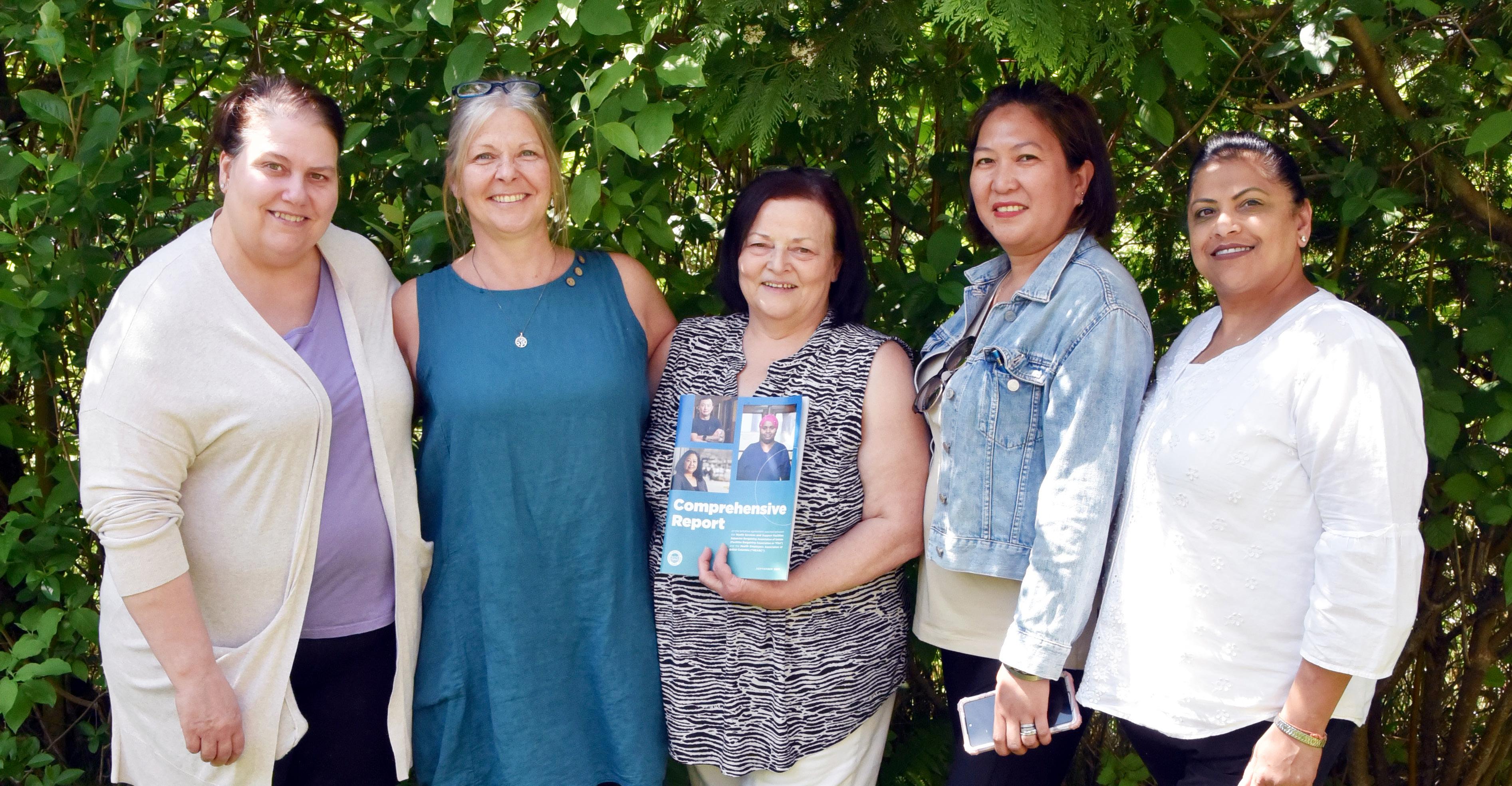
“What we accomplished marks an historic moment,” says Mandziuk, who works as an Enhanced Disability Management Program
steward and served on a joint unionemployer Indigenous-specific anti-racism working group during bargaining. “We’re in a transitional time, when rights that should have always existed are being recognized.
“The ceremonial, cultural, spiritual, and bereavement leave will have a great impact on the lives of Indigenous members. I’m proud of the contributions that I made to this provision. We now have a solid foundation to build on.”
Indigenous Peoples have always been at the forefront of bringing about change, says Mandziuk.
“Our ancestors took great risks to keep the culture alive when it was being forbidden, banned and beaten out of us,” she says. “Today, many people are in the process of reclaiming and healing, so now’s the time to get back to living and being who we are.”
Brisard points to another groundbreaking provision, the Memorandum of Agreement “where health employers and HEU have committed to work together to protect the security, privacy and safety of trans workers at all times, through five key measures. The agreement also outlines new opportunities for trans members to access gender or transition support.”

Former HEU secretary-business manager Carmela Allevato, who negotiated what was heralded as a generational-breakthrough
FBA agreement in the 1990s, has high praise for the new contract.
“This is a very, very good deal,” says Allevato. “It reminds me of other high-point collective agreements HEU has negotiated.
“In the 1970s, we bargained for antidiscrimination pay adjustments for 8,400 members. And in the 1990s, we secured pay equity and annual wage adjustments worth hundreds of millions of dollars to HEU members. Each round of bargaining builds on the last.”
With the agreement ratified last fall, the task of implementing the changes is well underway.
Securing improvements to the FBA agreement is just the first step, says Brisard. The challenge is making sure members get the full benefit of what was negotiated.
“Educating our members, shop stewards, health and safety representatives, and staff about the changes has been a big part of the rollout of the new contract,” says Brisard.
“At the same time, we have many working groups, committees and other forums – both within the union and externally with employers and government – working extremely hard on how to bring life to the new provisions we secured.
“We keep moving forward, just like we always have at HEU.”
FIGHTING ROLLBACKS IN ALBERTA

FOR MANY ALBERTA health care workers, the possibility of wage rollbacks is always front-and-centre, says CUPE health care sector coordinator Stacy Durning.
So, the kickoff to bargaining the most recent health care contract was much like previous rounds going back two decades.
“The memory of former Conservative Premier Ralph Klein’s devastating 21 per cent cuts to health care in the mid-90s still lingers here in Alberta,” says Durning.
“And that means health employers have no problem opening talks by putting rollbacks on the table to push down wage demands.”
Between April 1, 2020 and March 31, 2024, Alberta’s health care workers saw their wages increase at less than half the rate of their counterparts in B.C.
The average total wage boost for HEU members is 15 per cent over the same fouryear period – double the average increase for Alberta’s health care workers when you
8 GUARDIAN | SUMMER 2023
FOLLOWING UP | Securing improvements to the FBA agreement is the first step, but next up is ensuring members get the full benefit of what was negotiated.
THEY’VE SEEN IT ALL.
Workers across B.C.’s public sector have been on the front lines of a pandemic, floods and fires, and the poisoned drug crisis. They have kept our families safe and our province working through challenging times. And they will be critical to building a strong recovery that will protect our communities into the future.
As the cost of living skyrockets, these workers are seeing their pay cheques shrink.

This year, almost 400,000 workers across the public sector who provide the services we all depend on will be at the bargaining table.
Some of them are already there.
They deserve a fair deal.
A deal that protects their wages against inflation and supports the strong public services we need to build a stronger B.C. together.
TAKING LEGAL ACTION IN ONTARIO

Health care contract talks are also taking place in central Canada. But unlike Alberta, Ontario Premier Doug Ford’s government didn’t need to use threats to keep wages down during collective bargaining.
Instead, the government has tried to put every obstacle in the way of fair settlements – including passing the controversial Bill 124 – to stymy efforts at the table.
Since the bill was passed in November 2019, general wage increases across most of the public sector were limited to one per cent annually, impacting 780,000 workers. Health care workers had to picket against Bill 124


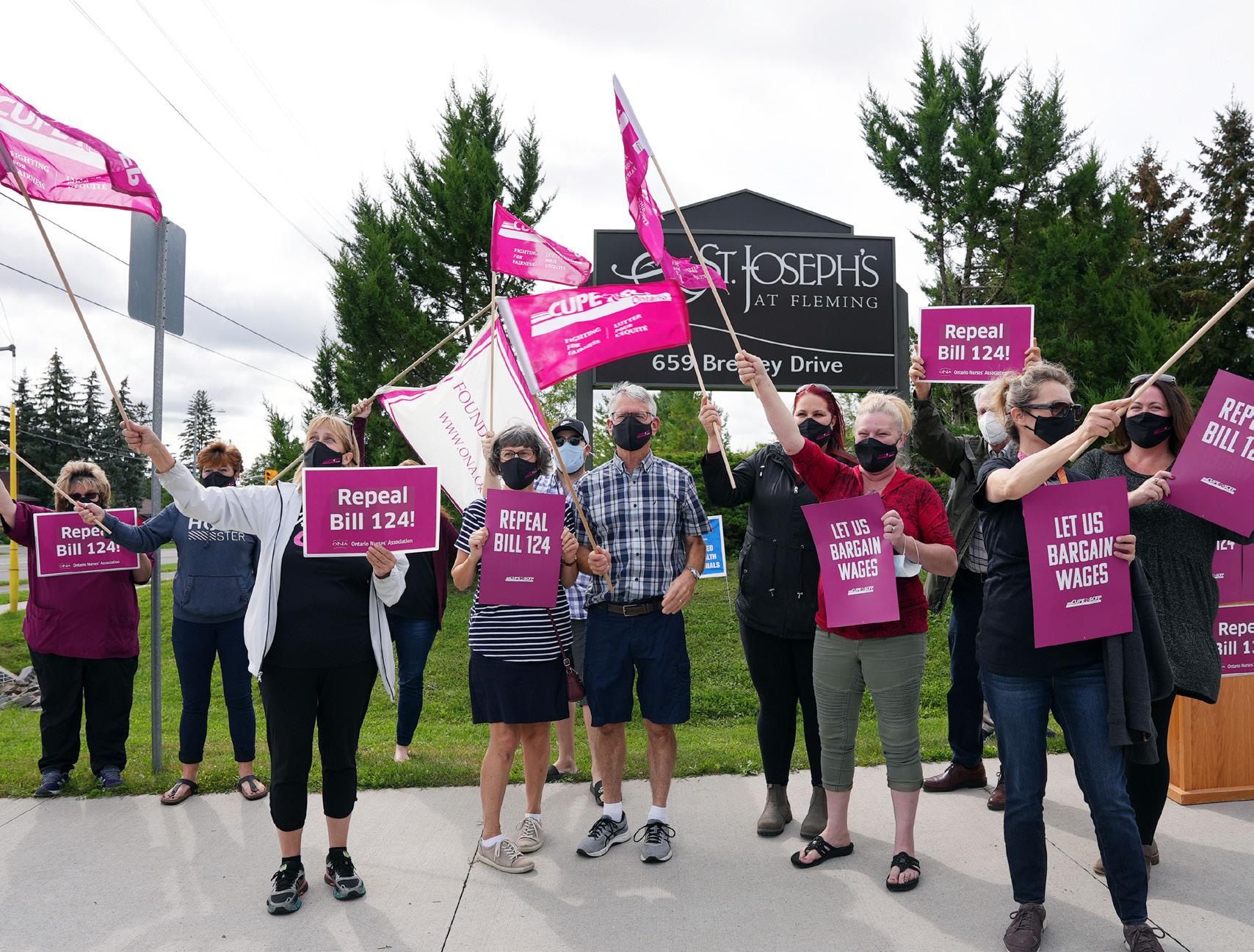
Recognizing this law was in violation of the Canadian Charter of Rights and Freedoms, 10 Ontario unions came together and launched a legal fight to overturn Ford’s anti-worker legislation.
Bill 124 was ruled unconstitutional by the courts last December, and labour now sees real opportunities at the bargaining table, but it will not come without a struggle with Ford’s Progressive Conservative government.
combine the overall value of annual general wage increases and lump-sum payments that Alberta Health Services provides.
“We’re sitting across the table from an employer that is backed to the hilt by Premier Danielle Smith’s United Conservatives – a government that has little respect for public health care or the workers who provide the care,” says Durning.
Fifty-five thousand school board workers were forced to strike illegally last fall, winning a 3.6 per cent wage increase, raising the depressed wage pattern.
However, the province is appealing the court’s decision on Bill 124 and the Ford government is trying everything it can to depress wages, so this fight is far from over.
In the end, the damage done by the Progressive Conservative government’s law in its first three years has kept wages for Ontario’s health care workers lower than what they could have achieved through free collective bargaining.
Still, looking ahead, Ontario health care workers are even more determined to get better settlements.
SUMMER 2023 | GUARDIAN 9
CUPE Ontario PHOTO
LET US BARGAIN | Frontline workers at a long-term care home in Peterborough, Ontario rally to protest the provincial government’s wage cap policy.
“IT’S EXCITING TO SEE LANGUAGE FROM OUR NEW COLLECTIVE AGREEMENT BEING ADOPTED AT OTHER BARGAINING TABLES ACROSS B.C. AND CANADA.”
But they’re being left behind.
A FAIR DEAL for public sector workers protects us all.
JOINT VENTURE | HEU partnered with other public sector unions during bargaining, to produce this ad series calling for a fair deal for frontline workers.
Pushing back against for-profit care

The fight to protect public health care in British Columbia is an ongoing battle, and both the provincial and federal governments are keeping a close eye on the situation.
In recent years, there have been several high-profile court battles between B.C. and companies attempting to circumvent the public health care system.
In February, the B.C. Medical Services Commission – the province’s health care watchdog –filed a lawsuit against Harrison Healthcare Inc., asking the courts to shut it down. The company, which has clinics in Vancouver and Calgary, is accused of charging people for health services that are covered by the public system.
According to the commission, Harrison Healthcare is violating the Medicare Protection Act (MPA), but the allegations have not been proven in court.
In 2022, the B.C. watchdog filed a similar lawsuit against Telus Health’s subscription-based LifePlus program. The commission claimed the Telus service was breaking the law by charging patients for services that should be publicly covered.
As reported by CBC, it hired a private investigator who went undercover as a client and was told they would have to pay a year-
VOICES
ly fee to see a family doctor.
In April 2023, Telus agreed to modify its LifePlus program, and the government withdrew its injunction.
Federal pushback
The issue of a two-tier system isn’t confined to B.C.
In March, federal health minister Jean-Yves Duclos warned provinces and territories that he would withhold some of the federal health care transfer money from provinces where private clinics have been operating.
Changes in 2020 to the federal health act meant that provinces weren’t supposed to permit private clinics to offer diagnostic testing for a fee. However, not all provinces have complied.
The minister’s deductions were to reflect the estimated amount Canadians paid, between 2020 and 2021, to access private health services that are also freely available from the public system.
The Globe and Mail reported an estimated $82.5 million of health transfer monies were held back, affecting seven provinces.
For B.C. it meant $17 million was to be withheld, but the federal ministry made an exception. That’s because B.C. has made it illegal for clinics to charge for diagnostic testing, and enacted a
plan to expand access to MRIs and other testing in clinics and hospitals across the province.
Cambie Case comes to an end
It’s been 14 years since B.C. physician Brian Day made headlines in his quest to provide private health care and surgeries to those who could pay.
In 2007, dozens of patients complained of being illegally extrabilled at Day’s Cambie Surgeries Clinics, triggering a government audit.
Day reacted by launching a constitutional challenge against the province over whether private health clinics can charge
patients for surgeries that are publicly insured and normally done in hospitals.
The case was plagued by lengthy procedural delays, but in 2020 the B.C. Supreme Court ruled that provincial laws which limit a two-tier health care system do not contravene the Charter of Rights and Freedoms.
Day appealed this decision to the B.C. Court of Appeals, which upheld the decision. He then appealed to the Supreme Court of Canada.
In April 2023, the Supreme Court upheld the lower courts’ decisions and denied Day any further appeals.
Becoming a transformational leader
WHEN people think about being a leader in a large organization or union, it often feels like a monumental task – one that many don’t feel equipped to take on. But leadership comes in many different forms, and being an elected leader is only one pathway.
Leadership is about building community and relationships. Transformational leadership is about having a vision of what we can accomplish together, and finding a path forward.
Some of the important skills of being a transformational leader are those that HEU members practice every day: active listening, empathy, compassion, courage, curiosity and humility. The organizing skills that HEU members gain by advocating for better working conditions are similar to those of a transformational leader.
Leadership is about building community and relationships.
Leadership is also about constantly learning and improving. It involves mentorship, and knowing when it’s time to lead and when it’s time to let others lead. HEU members can build their leadership skills by connecting with other members, and building community through workshops, union meetings and events.
These opportunities for connection help build your confidence to speak up for yourself, your co-workers and your community. It’s also critical for members to share their learnings with others so we can build our collective leadership skills.
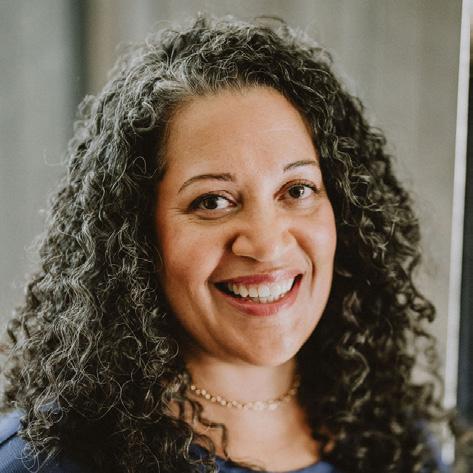 SEEKING TO PROFIT | As more private companies look for ways to make money from health care, government and advocates scramble to protect the public system.
SEEKING TO PROFIT | As more private companies look for ways to make money from health care, government and advocates scramble to protect the public system.
Public health care advocates have work to do as challenges continue to rise
NATASHA TONY is a leadership coach, trainer and labour relations specialist, and CEO of Vancouver-based Elevate Inclusion Strategies.
10 GUARDIAN | SUMMER 2023 LABOUR
News from here and around the world
WAGE CAMPAIGN
Minimum wage not enough for most
VANCOUVER City Council’s recent decision to abandon their status as a Living Wage Employer has brought new attention to a longstanding HEU initiative.
In 2007, the union developed its Living Wage Campaign in response to the B.C. Liberal government’s massive contracting out of health care workers.
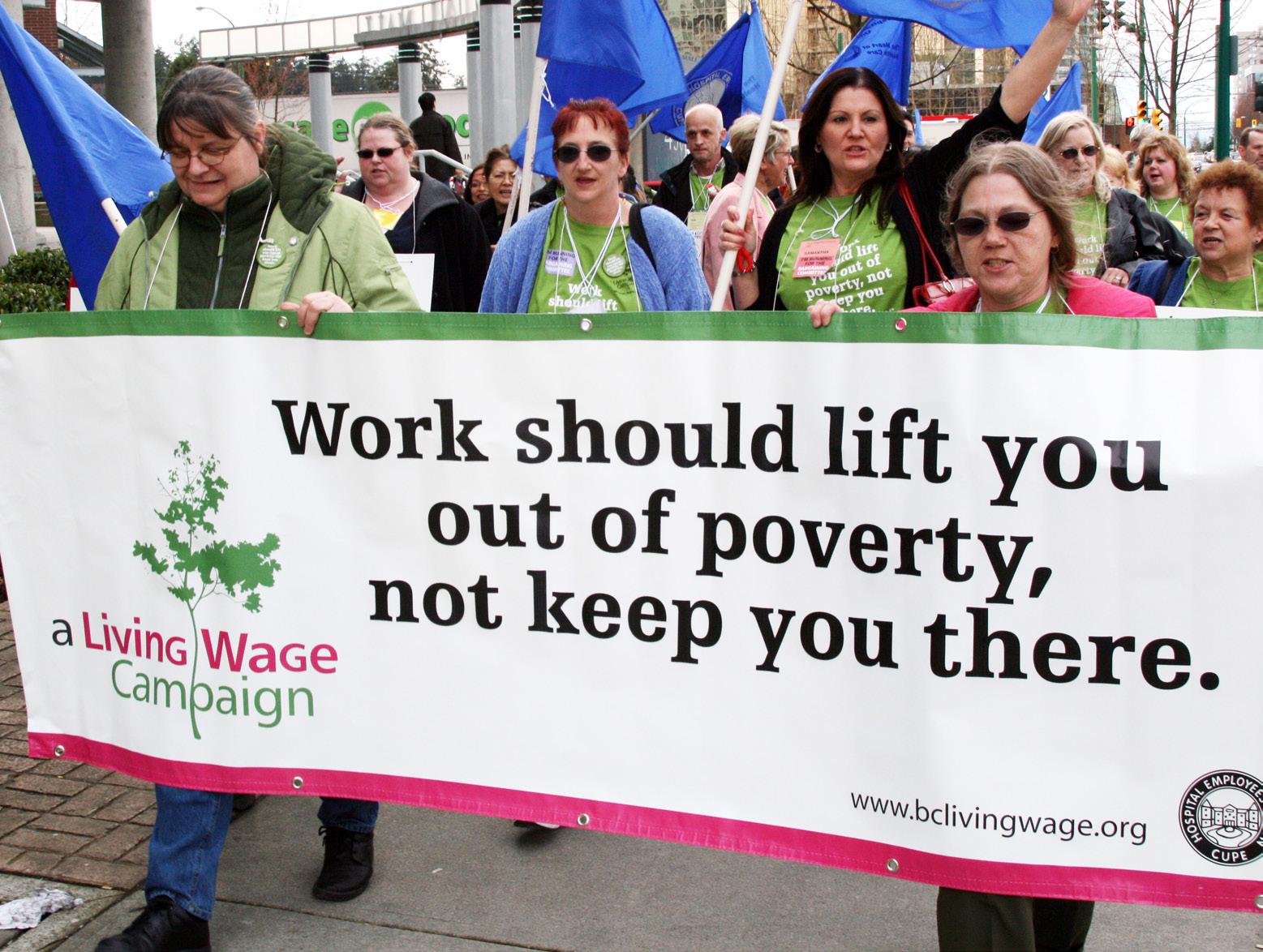
More than 8,000 HEU housekeepers and food service workers were fired. Their jobs were privatized with slashed wages (almost by half), no pension plan, minimal benefits, and no union protections.
Contracting out spread across other public employers like universities and civic governments, where cleaning and security services were common targets.
This meant contracted workers, earning minimum wage, worked alongside directly employed unionized workers who still saw decent wages and benefits.
HEU’s message to public institutions was they could not abandon these workers. They must take some responsibility for the wages and working conditions provided by contractors.
What is the living wage?
In B.C., the non-profit Living Wage for Families calculates what a family of two adults working full-time, with two children, needs to earn to afford rental housing, food, transportation, child care, and basic living expenses.
Based on 2022 calculations, this family would need to earn at
least $18.98 an hour in parts of the Fraser Valley (the lowest) up to $25.87 on Haida Gwaii. In Metro Vancouver and Victoria, the living wage just over $24 an hour.
The hourly minimum wage in British Columbia climbed to $16.75 on June 1 – more than seven dollars lower than most living wage calculations.
A certified Living Wage Employer pledges to ensure all their employees, including contracted workers, earn enough to live in their community
Living Wage campaign had popular support
HEU members held rallies, organized petitions, and took part in community and labour events to promote the campaign.
In 2009, hospital housekeepers presented the BC Liberals with 15,000 signatures in support of making living wages a condition of any commercial contracts.
Although the health authorities and provincial government never took the pledge, HEU was able to slowly raise the wages of contracted support services workers through numerous rounds of bargaining.
And in 2021, the BC NDP government announced they would reverse the contracting-out of housekeepers and dietary staff in health authority work sites.
B.C. has more than 370 certified Living Wage Employers, including Vancity Credit Union, the cities
NEWSBITES
B.C. budget short on seniors’ care details
In February, the BC NDP tabled its 2023 provincial budget that allocates new monies for cancer care and mental health and addiction services, and $6.4 billion in additional health funding to address workload, health and safety, and the recruitment and retention crisis.
“This budget supports the expansion of health workforce training, an additional 9.25 million hours in additional staffing under our main provincial collective agreement, and significant wage increases for health care
workers,” says HEU’s secretarybusiness manager Meena Brisard.
Provincial health authorities will see a $3.1 billion boost to their budgets by 25/26 for volume and service growth, and funding health care contracts.
Although the budget continues the pandemic practice of levelling up wages for low-waged workers in long-term care and assisted living, there’s few details on how government will implement its plans to make for-profit operators more accountable, build more public and non-profit care homes, or permanently standard-
of New Westminster, Quesnel and Victoria, and – until recently – the City of Vancouver.
based on a “five-year rolling average,” a method that would base wages on the current year and past fouryear period, instead of responding to real-time inflation rates.
“The living wage reflects how expensive it is right now to live, and people are struggling,” said Anastasia French, provincial manager of the campaign.
In March, the newly elected Vancouver council voted to discontinue their certified Living Wage Employer status. They proposed, instead, to calculate wage increases
“If you want to have workers in Vancouver... you need to make sure that you’re paying them enough money to be able to live in the city.”
ELAINE LITTMANN
ize
wages,
benefits and working conditions across the seniors’ care sector.
B.C. minimum wage up
On June 1, the hourly minimum wage in British Columbia became the second highest in Canada, close behind the Yukon.
Climbing $1.10 per hour, the new minimum wage of $16.75 puts B.C. only two cents an hour less than the Yukon’s minimum wage of $16.77. Alberta, Nunavut and the Northwest Territories have all frozen their minimum wage rates this year.
New report calls for home care review
B.C. Seniors Advocate Isobel Mackenzie recently issued We Must Do Better: Home Support Services for B.C. Seniors.
Released in February, the report examines five-year trends in home support funding, hours of care, client acuity, affordability, and family caregiver distress.
The research finds that home care client complexity and frailty are rising, while care hours are not increasing to meet this need.
And that more of the care is being shifted to family caregivers
LIVING
“The living wage reflects how expensive it is right now to live, and people are struggling.”
WORKERS DESERVE BETTER | After the B.C. Liberal government fired 8,000 health care workers, HEU launched the Living Wage Campaign as part of its fightback, highlighting the poverty wages paid to newly contracted-out workers.
SUMMER 2023 | GUARDIAN 11
Rise in child labour reports in U.S.
100 kids were working in 13 meatpacking facilities in eight states.
“The children were working the night shift and they were cleaning machinery on the processing floor, and they were using pressure hoses which are quite dangerous, and they were using caustic cleaning agents,” he said.
Along with the damning federal reports in 2023, the New York Times released an extensive investigation into child labour in March, forcing the issue to the forefront.
In response, federal agencies say they’re stepping up investigations and enforcement, expanding support for newly arrived migrant children, and strengthening the vetting process of adults who sponsor migrant kids.
“We see every day the scourge of child labour in this country, and we have a legal and a moral obligation to take every step in our power to prevent it,” said U.S. Secretary of Labor Marty Walsh in a statement.
“Too often, companies look the other way and claim that their staffing agency, or their subcontractor or supplier is responsible… This is not a 19th century problem; this is a today problem,” said Walsh.
CHILD labour in the United States is far from a thing of the past, and experts says they’re not surprised to hear the U.S. Department of Health and the Department of Labor have seen a 69 per cent increase in companies illegally employing children under the age of 18 to do high-risk jobs and work long hours.
“It’s very concerning that kids are working in factory settings,” says Reid Maki, director of Child Labor Advocacy for the National Consumers’ League and the coordinator of the Child Labor Coalition.
Maki attributes the jarring statistic to a genuine increase in instances of unlawful child labour, combined with better enforcement
of child labour laws under U.S. President Joe Biden.
The rise of child labour comes as the country is witnessing an influx of children from Latin America who, fleeing violence and poverty, are crossing into the United States without a parent, according to both Maki and government reports.
“Those kids are under a lot of pressure to send money home,” said Maki. “So, they’re desperate for work. And these seem to be the kids that are ending up in these illegal jobs in the factories, in the meatpacking plants.”
One of the most disturbing investigations from the federal agencies found that more than
The health and labour departments also called on Congress to increase fines to companies illegally employing kids. The current maximum penalty per infraction is just over $15,000 U.S. – “not high enough to be a deterrent for major profitable companies.”

“We’ve never not had a child labour problem,” explains Michael Hencock, a lawyer who spent 20 years working at the Department of Labor in the division responsible for child labour.
“I don’t know if there’s some sort of myth out there that we solved child labour and now it’s coming back,” said Hencock. “We never solved the child labour problem.”
who continue to experience high levels of distress.
“The biggest barrier to accessing home care in this province is how much we charge you for it,” said Mackenzie at a press conference, where she also called for the elimination of fees.
We Must Do Better calls for a comprehensive review and fundamental restructuring of home support services with five key recommendations, including eliminating financial barriers to access; increasing respite care for family caregivers; standardizing and set-

ting targets for service delivery; modernizing care plans; and measuring, monitoring and reporting on performance.
New law will require pay transparency
To help close the gender pay gap in British Columbia, legislation was introduced this spring requiring employers to include salary ranges on job postings, and banning employers from asking applicants for pay history.
The new law prohibits employers from punishing employees
who disclose their pay to coworkers or potential job applicants, and it requires B.C. employers to publicly post reports on their gender pay gap.
All employers must comply by November 2024 if they have more than 1,000 employees, November 2025 for employers with 300 employees or more, and all employers with more than 50 employees by November 2026.
Currently, B.C. is tied with Alberta for having the largest gender pay gap in Canada. In 2022, Statistics Canada found that
WORKER PROTECTION
NEWSBITES 12 GUARDIAN | SUMMER 2023
RISKY BUSINESS | Federal investigations in the U.S. reveal an alarming increase in companies sidestepping child labour laws, letting vulnerable young people work long hours in dangerous conditions.
DO BETTER | Home care client complexity and frailty are rising, research shows.
WORKING TOGETHER TO WIN
Last fall, Interior Health launched a rural retention incentive program to attract and retain health care workers. But the “retention bonuses” were only available to some job classifications.
This left many workers feeling devalued and demoralized about their contributions to the health care team.
Members of HEU’s Boundary local decided to take action to highlight the program’s unfairness, and to push for changes.
The local mobilized support and solidarity across health facilities, from both HEU and non-HEU members. And they generated strong support in the Grand Forks area.
Local members also met with BC NDP MLA Roly Russell to explain how this policy was impacting morale and creating division in the health care team.
Within a few months, HEU members received welcome news that the rural incentive program would be extended to all regular full-time and part-time staff. The local’s tenacity and community-building efforts had paid off.
“There is still work to be done,” said Boundary local member Jodi Manson at HEU’s Interior Regional Conference. “Our casual team members are still not part of this bonus, and we intend to keep pushing until that’s changed. But our work family is starting to heal.”
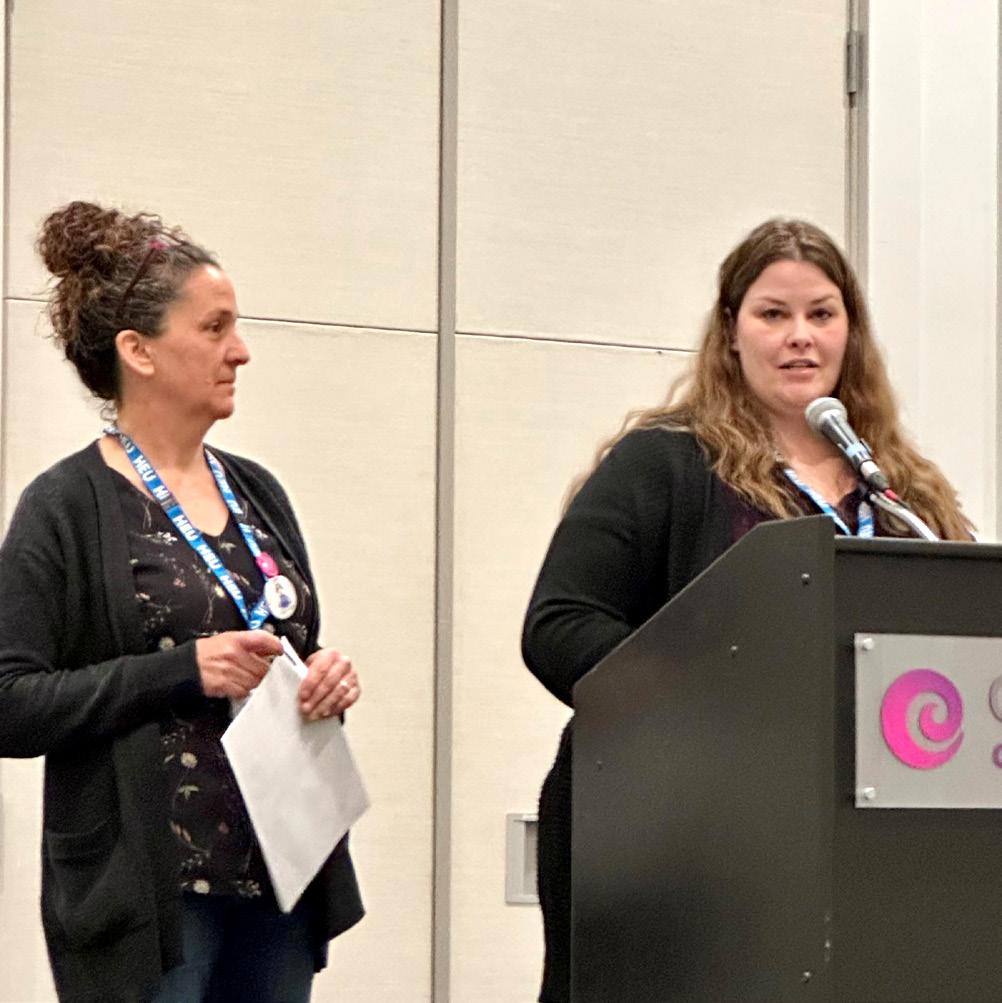 THI VU
THI VU
Health care on the move
Since 2005, HEU member Sandra Stephens has been coordinating health services in her community.
After five years as a receptionist with the Nisga’a Valley Health Authority, Stephens became a patient travel clerk.

“We experience a lot of negative feedback from people, and I was scared to take this position,” says Stephens. “Because I worked as a receptionist in this department, I knew the ins and outs of what to expect when I took this job, but I’ve been doing it now since 2010.”
Living in a remote area, residents are often required to travel to bigger cities to access health care.
“I arrange medical travel for them. So, it’s my job to get them to and from their medical appointments – whether it be by driving, by bus, by flying – and then we set up accommodations for them and their return home. If a patient is in need of an escort, I organize that as well.”
Born in Terrace and raised in Laxgalts’ap (also known as Greenville), one of four communities in the Nass Valley, Stephens says working in health care is a way to give back.
“I love helping people. Quite a lot of our own people ask for me and thank me. I’m grateful for that sort of positive feedback that I’ve helped somebody.”
She says building personal connections with patients and clients is the most-rewarding part of her job.
“Knowing what they’re going through, talking to them one-on-one, and just getting to know them is very satisfying.”
Stephens is a shop steward, the secretarytreasurer of her Nisga’a Health Care local, and is currently on the Nisga’a bargaining committee.
“I had a lot of mentors to look up to before they retired, and I asked them what to expect. They gave me tips here and there, but being at the bargaining table is an experience of its own that I’m happy to have.”
To unwind from work pressures, Stephens loves painting and making jewellery.
B.C. women earned 17 per cent less than men.
Critics of the legislation say it does not do enough to close the gender wage gap, and are calling for pay equity legislation guaranteeing the right to equitable pay.
Precarious work common, study finds
Only 49 per cent of workers in B.C. have a “standard job” –defined as a full-time, permanent job with a single employer, with at least some benefits – according to a survey by the Canadian Centre
for Policy Alternatives.
The study found that workers in “non-standard” jobs were far more likely to see their income vary from week to week, to work on-call, and to work multiple jobs. Almost half of them earned less than $40,000 a year.
And one-quarter of the respondents said they’d be concerned that raising a health or safety issue in their workplace would negatively affect their employment.

“Precarious jobs mean workers are experiencing insecurity, instability, low pay, a lack of access to
benefits, and negative impacts on physical and mental health, all of which have consequences not only for them but also for their families, their communities and our society,” the report concludes.
The survey is part of a larger, ongoing investigation on precarious work in B.C.
Our study finds that the burden of precarious work falls more heavily on racialized and immigrant communities, Indigenous peoples, women, and lower-income groups, compounding systemic and intersecting inequalities.
SUMMER 2023 | GUARDIAN 13
BRENDA WHITEHALL
ON
Patient travel clerk Sandra Stephens helps people in her Nass Valley community access the treatment they need, and return home safely.
THE JOB
“Knowing what they’re going through, talking to them one-on-one, and just getting to know them is very satisfying.”
NOT JUST UBER | Gig work comes to mind when we think of precarious work, but study shows that less than half the B.C. workforce has a “standard job.”
Elaine Littmann PHOTO
Defining duties
HEU members work in more than 270 job classifications. Do you know what our members do?

1 2 3 4
The stress levels of these HEU members are commonly compared to those of “air traffic controllers.”
a. switchboard operators
b. nursing unit assistants (unit clerks)
c. bed booking clerks
d. fire and safety officers
Which combination of workers represents HEU’s support services team?
a. cleaners, dietary aides, computer operators
b. food service supervisors, coordinator of volunteers, administrative assistants
c. laundry workers, food service workers, housekeeping supervisors
d. bakers, housekeeping aides, laundry workers
The “first responder” to workplace fires or floods, these HEU members are charged with the safe, continuous operation of a facility, as well as isolating ventilation systems and monitoring incoming city water.
a. plumbers b. carpenters
c. electricians d. power engineers
Also known as a phlebotomist, these HEU members draw blood samples to assist with diagnosis and treatment.
a. pathology attendants
b. medical lab assistants
c. pharmacy assistants
d. ophthalmic technicians
HEU MEMBERS:
Send us your answers to be entered to win a prize!
Go to heu.org/coffeebreak and submit your answer online by July 15, 2023.

Answers: b, c, d, b
Deva Wood is secretary-treasurer of her local and shop steward. She says her job is rewarding and loves knowing that she’s made a difference in the lives of others. “Being involved in the union has introduced me to a community of like-minded people who understand my challenges and my motivations.”

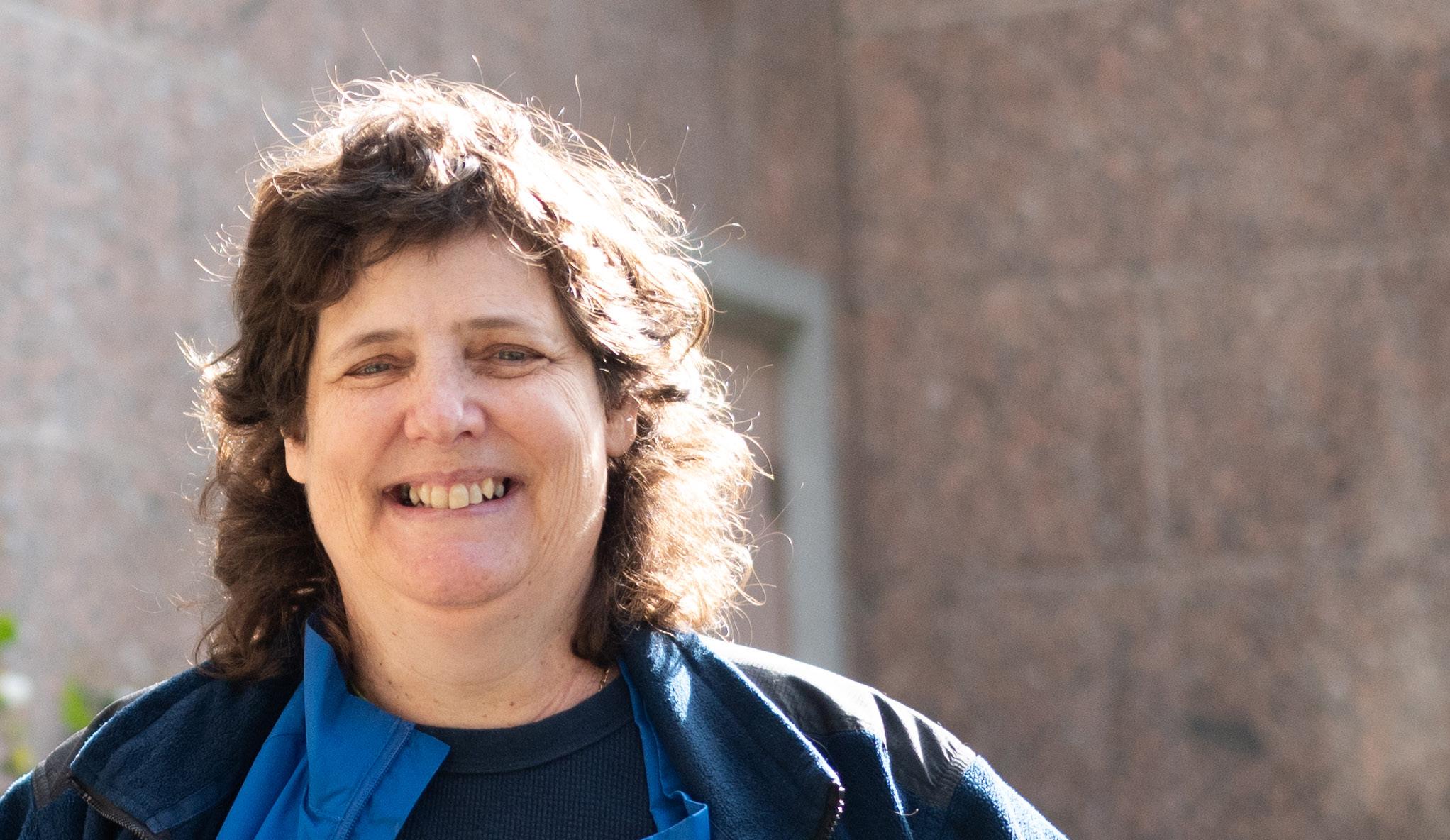
14 GUARDIAN | SUMMER/SUMMER 2018 COFFEE BREAK SUMMER 2023
HEU members at Becon local work in group homes in and around Victoria, providing support to adults and youth with disabilities.
Claire Negrich is warden at the local and loves bringing a smile to the faces of her residents. “I help support people to live a good life. I’ve been doing this work for 12 years and we’re short-staffed like many other sectors. Our priority is to make sure we are safe when we’re with our residents.”
Victor Sutton is a trustee and site rep for his local’s Joint OH&S Committee. He got involved in HEU “because I wanted to know my rights. I always ask in my jobs if it’s a union place because it helps me feel comfortable in the workplace.”
HEU PEOPLE
RETIREMENTS
In February, activity worker Linda Francescangeli retired from Trinity Centre Care Society in Penticton after 21 years of service.
“I really enjoyed the connection with our residents and the variety of programs we provide to them,” says Linda. “Getting to hear people’s stories can be very enlightening.”
One of Linda’s co-workers recalls, “Linda is a caring and considerate person who takes time getting to know folks and ensuring they feel included.”
“I will miss my co-workers and the friendships that have developed over the years,” says Linda.
During retirement, she plans to live a less hectic life, which she says will be a welcome change.
IN MEMORIAM
Joyce Dawson passed away in February. She worked in Health Records at the Prince George Regional Hospital.
Joyce served several terms on the HEU Provincial Executive. She delighted in recruiting new shop stewards and supporting fairness in the workplace and equality for women. Her leadership is still resonating.
Along with her passion for justice, Joyce loved reading and was a great listener. Strong and passionate in her opinions, her voice carried far in her values, as well as in volume. She was a force to be respected.
Joyce was well-known to many and will be dearly missed.
CHECK OUT OUR NEW ONLINE






50,000 members in 296 locals

In March, millwright Alexei Gorchounov died tragically. He began working as a millwright at Royal Jubilee Hospital in 2012, and more recently at Victoria General Hospital.

“He was a skilled artisan with anything made out of metal, whether it was specialized clamps made for operating rooms or items of a more personal nature, such as detailed miniature work he performed on retirement gifts or other presents over the last few years,” says Alexei’s director.
An avid outdoorsman, Alexei loved Vancouver Island, where he could fish and do the activities he enjoyed.
Alexei will be missed by his family, friends and co-workers. “Do svidaniya!” (Until we meet again!)
Longtime HEU member and representative Della McGaw passed away May 17, after a long illness.
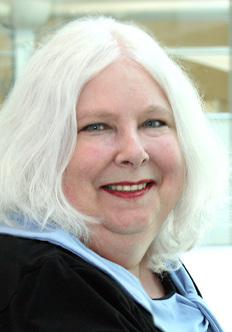
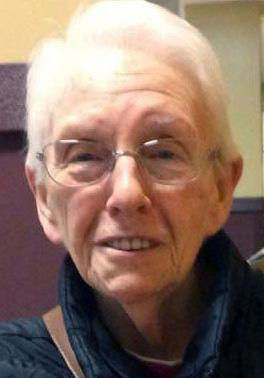

Della began her HEU career as a care aide at Penticton and District Retirement Centre long-term care facility, where she served as secretarytreasurer of her local.
She was a strong voice for seniors’ care when the Centre was closed by the BC Liberals in 2002, calling the decision “appalling.”
Della began working for the union in 2003, at the Provincial Office in Burnaby.
During her time at HEU, she was wellrespected and admired. Beginning as a servicing representative, she moved on to organizing and education, and worked as an occupational health and safety representative, before leaving the workplace in 2016.
Della will be deeply missed by her friends, family and many HEU members and colleagues.
Equity matters

Did you know that HEU has six equity standing committees? Working with HEU’s equity officer, they provide outreach and advocacy to HEU members, and work in solidarity with other social justice groups.
To learn more, call 1.800.663.5813 to speak with HEU’s equity officer Sharryn Modder.
Ethnic Diversity • Indigenous Peoples
Pink Triangle • People with Disabilities • 2-Spirit, Women and Non-Binary • Young Workers
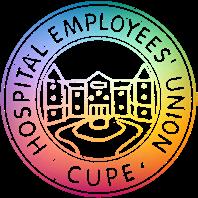
“In humble dedication to all those who toil to live.”
EDITOR
Caelie Frampton
MANAGING EDITOR
Elaine Littmann
ASSOCIATE EDITOR
Brenda Whitehall
GRAPHIC DESIGNER
Elaine Happer
PRINTING
Mitchell Press
PROVINCIAL EXECUTIVE
BARB NEDERPEL
President
MEENA BRISARD
Secretary-Business
Manager
BETTY VALENZUELA
Financial Secretary
BILL MCMULLAN
1st Vice-President
CHARLOTTE MILLINGTON
2nd Vice-President
DONOVAN ADLAM
3rd Vice-President
TALITHA DEKKER
Senior Trustee
CHRIS BATTING
Senior Trustee-Elect
OLIVIA BURGON
Trustee
BONNIE HAMMERMEISTER
Regional Vice-President
Fraser
SCOTT MCKAY
Regional Vice-President
Fraser
DIANE TOMEI
Regional Vice-President
Fraser
HEIDI COLLINS
Regional Vice-President
Interior
MONICA THIESSEN
Regional Vice-President
Interior
BARB SHUKIN
Regional Vice-President
Interior
ANGELA SHARF
Regional Vice-President
North
LISA CREMA
Regional Vice-President
North
LOUELLA VINCENT
Regional Vice-President
Vancouver Coastal
MARIA LUGS
Regional Vice-President
Vancouver Coastal
KAREN MCVEIGH
Regional Vice-President
Vancouver Coastal
IAN SMITH
Regional Vice-President
Vancouver Island
PHIL HENDERSON
Regional Vice-President
Vancouver Island
LYNN SERHAN
Diversity Vice-President
Indigenous Peoples
CORA MOJICA
Diversity Vice-President
Ethnic Diversity
DARLENE BOWN
Diversity Vice-President
Pink Triangle
LISA KREUT
Diversity Vice-President
2-Spirit, Women and Non-Binary
CHRISTINE EDGECOMBE
Diversity Vice-President
People with Disabilities
SEYDA YALCIN
Diversity Vice-President
Young Workers
HEU OFFICES
PROVINCIAL OFFICE
5000 North Fraser Way
Burnaby V5J 5M3
604-438-5000
1-800-663-5813
EMAIL heu@heu.org
WEB www.heu.org
REGIONAL OFFICES
Vancouver Island
VICTORIA
201-780 Tolmie Avenue
Victoria, V8X 3W4
250-480-0533
1-800-742-8001
COMOX
6-204 North Island Highway
Courtenay, V9N 3P1
250-331-0368
1-800-624-9940
Interior
KELOWNA
250-1815 Kirschner Road
Kelowna, V1Y 4N7
250-765-8838
1-800-219-9699
NELSON
745 Baker St. Nelson, V1L 4J5
250-354-4466
1-800-437-9877
Northern PRINCE GEORGE
1197 Third Ave. Prince George, V2L 3E4
250-564-2102
1-800-663-6539
HEU is a member of the Canadian Association of Labour Media
SUMMER 2023 | GUARDIAN 15
STORE! Our new online store makes it easier to shop for HEU-branded T-shirts, jackets, travel mugs, baby onesies, and much more. Visit heustore.org to see the latest items and start shopping today!


2002-039 MPP 2023 AGM BCHEU ad DRAFT Your pension is secure Join early for Q & A sessions with representatives from BC Pension Corporation, Municipal Retiree Benefits Trust and Pacific Blue Cross in breakout rooms from 9-9:45 a.m. Register at mpp.pensionsbc.ca Learn more at the 2023 AGM Online October 12 10a.m.–noon RETURN TO The Guardian 5000 North Fraser Way Burnaby, B.C. V5J 5M3 AGREEMENT NUMBER 40007486











 NAOMI MOSES
NAOMI MOSES


















 SEEKING TO PROFIT | As more private companies look for ways to make money from health care, government and advocates scramble to protect the public system.
SEEKING TO PROFIT | As more private companies look for ways to make money from health care, government and advocates scramble to protect the public system.



 THI VU
THI VU



















